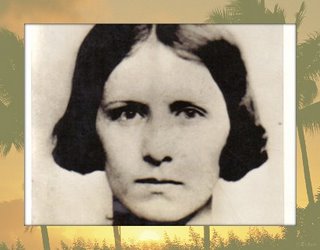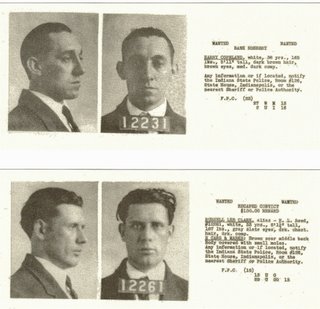 I am looking for information on Vivian Chase. A bandit from the late 1920's and early 1930's. She is unique because she was a gangster herself. Of course there is not a lot of information on her.
I am looking for information on Vivian Chase. A bandit from the late 1920's and early 1930's. She is unique because she was a gangster herself. Of course there is not a lot of information on her.
I figure that a good plan of action will be searching in: newspaper archives and requesting information from the FBI. I'm wondering if the FBI search is going to be fruitful. It's easier to get information on historical figures from the FBI these days through the Freedom of Information Act, but Chase is marginal. She is not big time like Dillinger and Karpis. She was involved in the Luer Kidnapping. A truly botched job! Since this kidnapping is post Lindbergh the form Bureau of Investigation may have some info on her. Nothing beats a failure but a try.
I love this picture simply because I think she's looking the world square in the eye. Unflinching.
So Vivian Chase..She met her doom in a car. The speculation is that she was meeting up with an accomplice to split some booty. Either the accomplice or another party put a bullet through her head. Crime does not pay, but still for those like me who are hopelessly strait & narrow, it is interesting. She looks like it was all business to her. I am going to try to sketch her, because that picture does not look like a pretty woman, but I think it might be misleading. She was a red head, so she must have had a fair complexion, her skin looks smooth (even mug shots show up bad skin). It's stupid but I think of stuff like that. Yes I'm superficial. I believe you should find your fun where you can and as long as you aren't hurting anyone--have at it.
